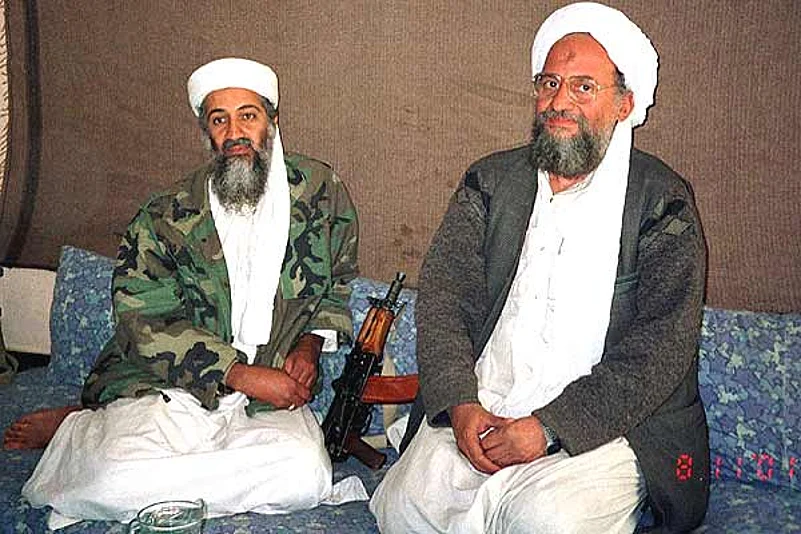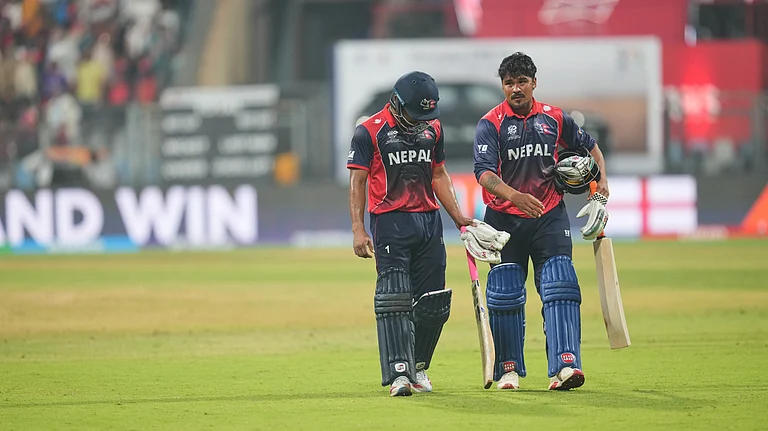Ground Realities
- Civilian casualties: Over 25,000
- Head Money: $50 m for Laden; $25 M for Zawahiri
***
The recent London meet on the Afghan issue has naturally fanned deep concerns all around about the willingness of western powers, including the US, to broker a deal with the Taliban, making many wonder whether the international coalition is indirectly admitting its inability to vanquish the Islamic militants. But the bitter truth is that the US and Britain, through Saudi and Pakistani officials, have been engaged in truce parleys with the Taliban for nearly two years.
Pakistani sources say representatives of the Hamid Karzai government and the Afghan Taliban held secret talks in Mecca between September 24 and 27, 2008. Participating, or rather supervising the parleys, were also American officials. The talks were spread over four days, but in the end failed to break the logjam. The Mecca initiative collapsed because the Taliban said they could accept a peace deal subject to the US and the International Security Assistance Force (ISAF) withdrawing from Afghanistan. The Saudis were then unable to provide a timeframe by which the American troops deployed there would withdraw.
But it wasn’t only the Taliban who had put conditions on the table during the Mecca talks. The Karzai government and US officials insisted the Taliban militia accept Afghanistan’s new constitution and join the political mainstream under the existing system of governance. The Americans also wanted the ameer of the Afghan Taliban, Mullah Omar, to ditch Al Qaeda and help arrest Osama bin Laden. All these might have been acceptable but for the Taliban’s insistence that the US should first withdraw from Afghanistan before a formal dialogue between them and the US-Afghan government could be initiated.
Diplomatic sources in Islamabad say in the Mecca talks the Taliban were represented by their former foreign minister Wakil Ahmed Muttawakil, former minister Maulvi Arsala Rahmani, and Afghanistan’s last ambassador to Pakistan, Mullah Abdul Salam Zaeef. The trio are said to have travelled to Mecca to perform Umra (visiting the city on days other than the Haj), but sources confirm they were hosted as official guests of the Saudi government. They were also among those who attended the iftar party of King Abdullah on September 29. The Afghanistan government delegation was led by former chief justice Maulvi Abdul Hadi Shinwari and included, among others, Abdul Salam Rocketi, a Taliban commander under Mullah Omar who surrendered to the US.
On their return from Mecca, Zaeef, whom Pakistan had arrested in 2001 and later delivered to the US, claimed he and others had gone on Umra on the Saudi government’s invitation. He further insisted that they neither represented the Taliban nor the Afghan government. “No formal talks were held between the Taliban and the Afghan government in Saudi Arabia,” Zaeef insisted. Then a Taliban spokesman, Zabihullah Mujahid, also said the troika that had visited Saudi was no longer associated with the Taliban movement.
However, diplomatic circles in Islamabad insist the Taliban troika had visited Saudi Arabia with the consent of Mullah Omar, the supremo of the militant Islamist group. These sources also say peace negotiations still continue at the behest of American and British officials, and facilitating these parleys are the General Intelligence Directorate (GID) of Saudi Arabia, the isi and Pakistan and Saudi officials. Playing a role in the process is the chief of the Islamabad-based Jamiatul Ansar, Maulana Fazlur Rehman Khalil, who had earlier tried to broker peace between the Musharraf regime and radical maulanas holed up during the Lal Masjid mosque in 2007. He was also brought in when militants had laid siege to the general headquarters last year.
Sources say it was actually Prince Turki Al-Faisal, the former head of the Saudi intelligence agency, who had requested Pakistan to use its influence on the Taliban to make them come to the negotiating table in Mecca. Prince Faisal is reputed to have close ties with the Taliban and had acted as an intermediary between them and others before 2001. Before the Mecca talks, a senior Saudi official reportedly travelled to the volatile North Waziristan agency on the Pak-Afghan border to interact with the Taliban top brass, hoping to also meet Al Qaeda second in command, Dr Ayman Al Zawahiri. But the official was allowed access only to the third-tier Taliban leaders, perhaps because of security reasons. Ultimately, though, the Taliban agreed to dispatch some of their representatives for the Mecca talks.
Renewed talks of opening a channel of dialogue is an opportunity for Pakistan to defend its interests in Afghanistan, circumscribing India’s efforts there. Yet critics say Pakistan should tread carefully. For one, they argue the Taliban, whether Afghan or Pakistani, have the same rigid worldview and are strategically linked to each other. They maintain that the return of Afghan Taliban to power would bolster their Pakistani counterparts and other jehadis, sucking Islamabad into a vortex of radicalism and violence from which it would find it difficult to extricate itself.





















